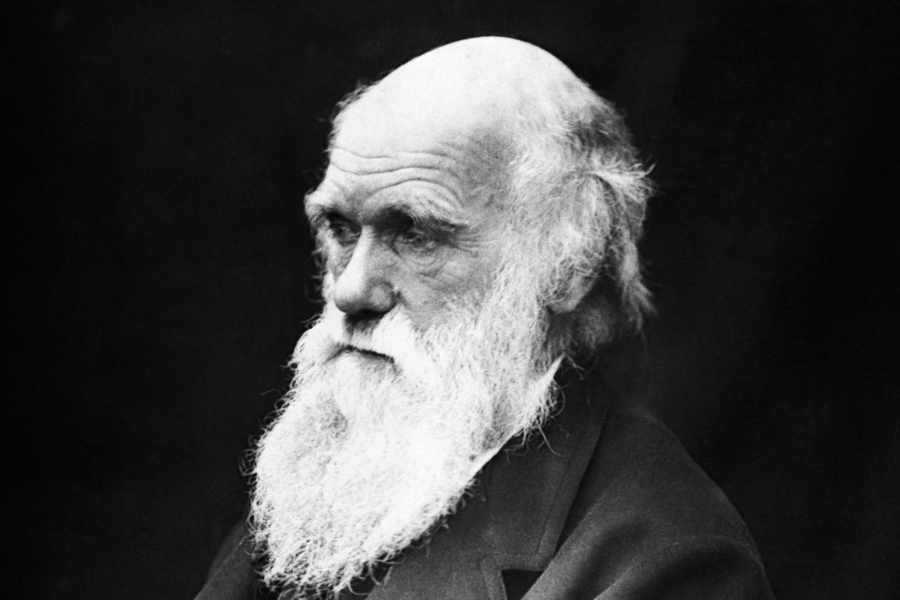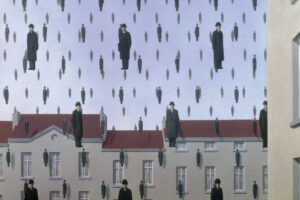Darwin’s philosophy of aesthetics is exciting. History is the progression of creation from “so simple a beginning,” to “endless forms most beautiful and wonderful.” (On the Origin of Species, p. 507) If we have any capacity at all to appreciate the beauty we see in the world, we have to be thankful to whatever is responsible for making things the way they are. According to Darwin, Christian doctrine at the time maintained that all species were created in the beginning by God. Darwin, however, had identified hundreds and thousands of miniature variations occurring, even within the same species! He had seen diversity unfolding and species multiplying almost before our very eyes. If the world is as beautiful as it is now, he says, think of what it will be as that force continues its creative work into the future! The questions I have for this philosophy are as follows: (1) Who or what is responsible for the continued diversification of species and beautification of the world? (2) Is there actually grandeur in this view of life? and (3) What constitutes beauty?
Darwin’s Theory
Who or what is responsible for the continued diversification of species and beautification of the world? Whereas man was proud and thought he stood over nature, Darwin found that nature stood over man. “Variability,” he says, “is not directly produced… by man; he can neither originate varieties, nor prevent their occurrence; he can (only) preserve and accumulate such as do occur.” (p. 76) Variation that results in speciation depends on the organisms’ natural environment and is an accumulation of many minor changes over time. Speciation, which brings new and diverse beautiful forms, is affected by behavioral changes in each species. And species change behavior as a response to their circumstances in competition for limited resources in the struggle for existence. In short, beauty is the result of intra-species competition in the great struggle for existence.
Is there actually grandeur in this view of life? In a sense, there is. The existence of new and improved species demonstrates the strength of organisms which have adapted to the conditions of the world most successfully. This is consoling to people who have struggled a lot. They can point back at their struggles and identify ways it’s made them stronger and more beautiful. However, some struggles don’t make one stronger; some struggles cripple people for life. But Darwin’s grandeur extends beyond individual life, and even human history:
Hence we may look with some confidence to a secure future of great length. And as natural selection works solely by and for the good of each being, all corporeal and mental endowments will tend to progress towards perfection. (p. 506)
Sometimes, for the world to be made more beautiful, it requires that those less fit for survival leave resources for those who are more fit. There is no grandeur in saying “I’m making it!” especially if it costs the other members of the species resources. For the sake of the beauty of the world, if you’re just barely hanging on, you should stop surviving. Neither is there any grandeur in saying “We’re all making it!” Natural selection beautifies the earth most unbiasedly when only strong individuals adapt and survive. Artificially supporting the weak has a negative effect on the rest of the species.
Beauty: What counts? and What doesn’t?
Now if this process of beautification is effective, what constitutes beauty for Darwin? According to Darwin’s biological data, creation will continue bring forth all kinds of new forms of beauty we have yet to imagine. And they will live even longer, because survivability is his only objective standard of beauty. But accepting this natural biologist’s philosophy of aesthetics has a cost. For one thing, focusing on progress towards the new thing contradicts looking back at the old thing. And looking back at the old thing is the basis of redemption and restoration. The old thing that was lost at the Fall will be found again and all things will be made new. This is a grander view of life for two reasons. First, the consolation of the weak is not the victory of the strong and the greater good of the world, but that even old things like them have intrinsic value and will be restored. Second, that hope has a fixed object and goal.
Darwin’s definition of beauty also excludes Jesus. According to the doctrine of natural selection, because Jesus failed to survive very far into adulthood, he must not have been beautiful. But Christian beauty is rooted in the doctrine of supernatural selection. We can take comfort in knowing that we, though weak and prone to death, can be united with Christ by grace to share in his death and resurrection and be beautified—transformed into his image from one degree of glory to another. The existence of a fixed standard of beauty beyond than survivability allows us to pursue courageous, obedient love even when it seems to threaten our ability to survive.





Leave a Reply
Your email is safe with us.